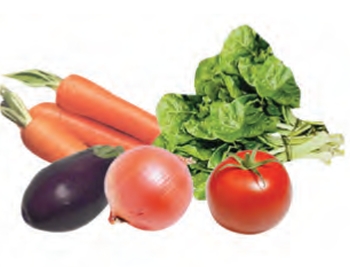Effect of nutrition education on nutrition-related knowledge, attitudes, and consumption of diversified diets among families owning a home garden in northern Ghana
Combined effect of household gardens ownership and nutrition education
Abstract
Introduction: Micronutrient deficiencies are widely prevalent, especially in low- and middle-income countries, and this may be addressed by increased consumption of fruits and vegetables (FV). However, the consumption of FV in many households is below the recommended levels. Though home gardens have the potential to increase this, their mere ownership may not be sufficient to ensure an increased consumption of FV. However, home gardens coupled with nutrition education can help in improving household diets. In this study, we evaluated the apparent effect of an ongoing nutrition education intervention on nutrition related knowledge, attitudes, and consumption of diversified diets in households with home gardens in rural areas of Northern Ghana.
Methods: A community-based study using a posttest-only nonequivalent groups design was conducted in February 2021 on a sample of 232 rural households that have access to home gardens and with children aged 6 to 36 months. One group of households (n= 110) had been assigned to receive a nutrition education intervention and the other group (n= 122) served as a comparison. Mothers were interviewed regarding their child’s feeding practices while the fathers were interviewed on their knowledge and attitudes towards nutritional and health benefits of fruits and vegetables. Multivariable logistic regression was used to determine the association between the major independent variable and the outcome variables of interest after adjusting for some of the confounding factors.
Results: After the nutrition education intervention had been ongoing for 7 months, the mean nutrition knowledge scores regarding appropriate child feeding practices in the intervention group was significantly higher than in the comparison group (28.33±6.60 versus 25.38±5.22), p = 0.009. Similarly mean nutrition-related attitudes (NRAs) towards childcare and feeding practices were higher in the intervention than the comparison group 31.70±2.32 versus (29.52±2.85), p < 0.001. Members in households owning a home garden and who also received nutrition education were 3.53 times more likely to consume vitamin A- rich fruits and vegetables [AOR = 3.53, (95% CI: 1.68 - 7.43)], compared with their counterparts which had only home gardens.
Conclusions: Nutrition education in households possessing home gardens appeared to result in significantly higher over-all nutrition knowledge and attitude scores among fathers. The intervention also improved actual consumption of fruits and vegetables in the households. This study contributes to the already existing evidence that joint nutrition education and home gardening have a positive effect on the consumption of diversified diets including FV in low-income countries.

Authors retain all copyrights. In making a submission to World Nutrition, they are certifying that all material is theirs except quotations, as indicated, and that they have obtained permission for any photos, tables, or graphics taken from other publications or websites.




